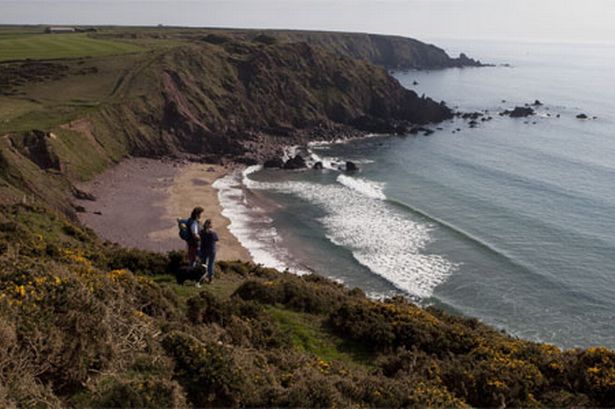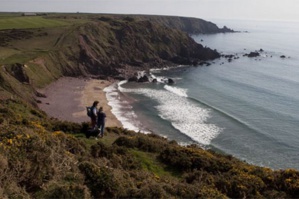Dailycsr.com – 26 January 2016 – The “Marine Conservation Zones” has been created newly for enhancing the marine life recovery process in the water of English seas. The news was confirmed by the “Marine Conservation Society” which followed the announcement made by the Department For Environment, Food and Rural Affairs, in short Defra, whereby it had declared a further designation in “23 Marine Conservation Zones” for the “English Seas”.
The recent Marine Conservation Zones cover the “Cromer Shoal Chalk Beds” which is the “longest chalk reef” in Europe; the “Farnes East” for being “one of the deepest patches of the North Sea” that sounds somewhere between thirty to hundred metres; the “Greater Haig Fras” which remains the only sizeable “rocky reef in the Celtic Sea”; and the last one being the “Mounts Bay” that stretches from “St Michael's Mount and the Marazion area” and houses “important species” of fauna and flora like crayfish, “stalked jellyfish” and sea grass.
Adding up the newly designated Marine Conservation Zones, the total number counts up to fifty such places. However, the proposed number of MCZ varies from the existing ones. The original proposed number was suggested five years ago in a collaborative effort from the “conservation groups”, the scientific advisors of the government and the sea users.
According to the statement coming from the Society, the government appears to be on track to fulfil its commitment of developing a “full network of sites” besides the fifty marine conservation zones that are still due for a final consultation and revision in the coming fiscal year of 2017 – 2018, whereby the society seemed “pleased” by the present developments.
In the words of the MCZ’s Policy Head, Melissa Moore, who believes that the MCZ’s are a testimony of the attempts being made to conserve and contain the “alarming decline in England’s rich marine biodiversity”:
“Stunning habitats such as the chalk reefs near Cromer and deep water rocks at Farnes East will now be better protected for future generations as will iconic species such as the ocean quahog, pink sea fan and European eel.”
Although the MCS considers the designations of the conservation sites as mere “first step”, while Moore adds:
“We’re recommending that the final tranche in 2017 includes South Celtic Deep - a site that supports short-beaked common dolphin -Norris to Ryde, which is rich in seagrass meadows, Mud Hole off the north west coast - 35 metres deep and home to rare sea pens - and Compass Rose off the Yorkshire coast, which is an important spawning and nursery ground for herring and lemon sole. Once the full network is finally designated in 2018, we look forward to English seas beginning to recover from decades of damage”.
References:
http://www.ethicalperformance.com/
The recent Marine Conservation Zones cover the “Cromer Shoal Chalk Beds” which is the “longest chalk reef” in Europe; the “Farnes East” for being “one of the deepest patches of the North Sea” that sounds somewhere between thirty to hundred metres; the “Greater Haig Fras” which remains the only sizeable “rocky reef in the Celtic Sea”; and the last one being the “Mounts Bay” that stretches from “St Michael's Mount and the Marazion area” and houses “important species” of fauna and flora like crayfish, “stalked jellyfish” and sea grass.
Adding up the newly designated Marine Conservation Zones, the total number counts up to fifty such places. However, the proposed number of MCZ varies from the existing ones. The original proposed number was suggested five years ago in a collaborative effort from the “conservation groups”, the scientific advisors of the government and the sea users.
According to the statement coming from the Society, the government appears to be on track to fulfil its commitment of developing a “full network of sites” besides the fifty marine conservation zones that are still due for a final consultation and revision in the coming fiscal year of 2017 – 2018, whereby the society seemed “pleased” by the present developments.
In the words of the MCZ’s Policy Head, Melissa Moore, who believes that the MCZ’s are a testimony of the attempts being made to conserve and contain the “alarming decline in England’s rich marine biodiversity”:
“Stunning habitats such as the chalk reefs near Cromer and deep water rocks at Farnes East will now be better protected for future generations as will iconic species such as the ocean quahog, pink sea fan and European eel.”
Although the MCS considers the designations of the conservation sites as mere “first step”, while Moore adds:
“We’re recommending that the final tranche in 2017 includes South Celtic Deep - a site that supports short-beaked common dolphin -Norris to Ryde, which is rich in seagrass meadows, Mud Hole off the north west coast - 35 metres deep and home to rare sea pens - and Compass Rose off the Yorkshire coast, which is an important spawning and nursery ground for herring and lemon sole. Once the full network is finally designated in 2018, we look forward to English seas beginning to recover from decades of damage”.
References:
http://www.ethicalperformance.com/


 The Marine Conservation Zones Along The English Coast Have Been Extended Up to Fifty
The Marine Conservation Zones Along The English Coast Have Been Extended Up to Fifty





 Companies
Companies